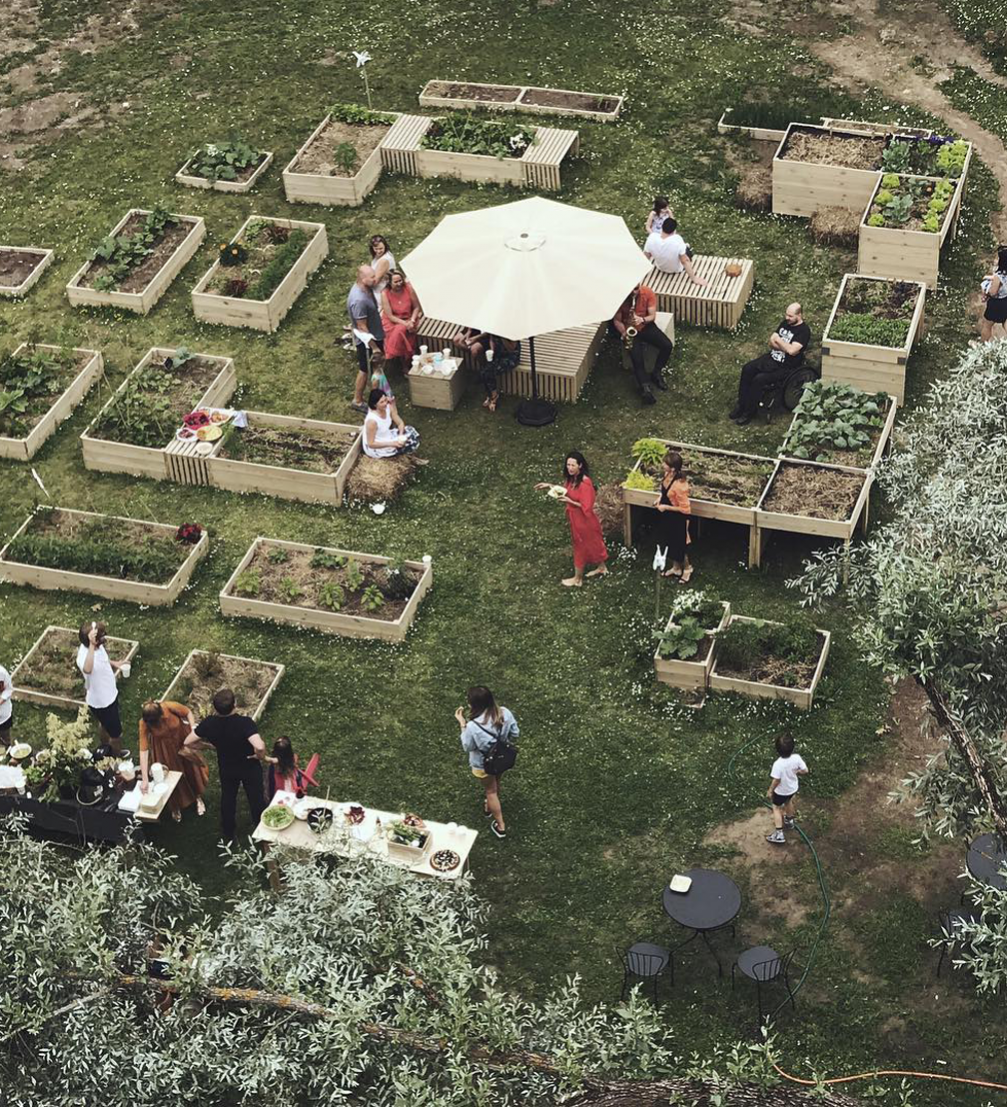
Finishing her master’s studies at the Art Academy of Latvia’s functional design program, Nora Gavare unveils her graduation work «Audz» — a community garden that unifies social and experience design. The project was implemented in Sigulda, at the Zaļā villa creative block at 3 Valdemāra street and its author invites anyone to get involved and take part in the grooming of the garden, to partake in its fruit or to simply drop by and relax at the newly built green corner in the city center.
Nora Gavare’s community garden «Audz» («Grow!») is a local, small scale answer to the global climate challenges of the 21st century: the depletion of the Earth’s resources, air pollution, the increase in industrial production and the disastrous amounts of waste production. Nora was an «Erasmus» student studying urban planning and development at Hong Kong when she acquired firsthand experience of the problems of overpopulation, the expansion of urban environments at the expense of nature territories and the rapid increase in the demand for food — issues that, while still foreign to the Latvian community, are inevitable in the context of the coming climate crisis. Simultaneously, Latvia has seen an increase in demand for healthy, locally grown non–packaged food. «People in the cities want to know the origin, quality and processing of their food but the only way to be completely sure about its quality and «transparency» is to grow and prepare it ourselves. But do we have the necessary knowledge to grow tomatoes, for example? Have we distanced ourselves from such natural processes? What would it be like if we created a place where we could learn about, share and experience these things?» says the project’s author.
The community garden is built upon the principles of openness and cooperation and tries to involve all societal groups and generations. The first phase of development was carried out in cooperation with the Pensioners Society of Sigulda, the Organization for Disabled Youths «Cerību spārni», the Art School of Sigulda and the students of Sigulda State Gymnasium, as well as local city residents. The community garden was adapted to the needs of children, senior citizens and handicapped persons by designing the flower beds and seating spaces in the garden at different heights, thereby ensuring that they are accessible to everyone. The garden also features a greenhouse that is wheelchair accessible. The project «Audz» seeks to develop urban gardening and actualizes the importance of healthy and sustainable lifestyles by promoting knowledge necessary to grow food, and serves as both a meeting place and a bridge connecting different societal groups.
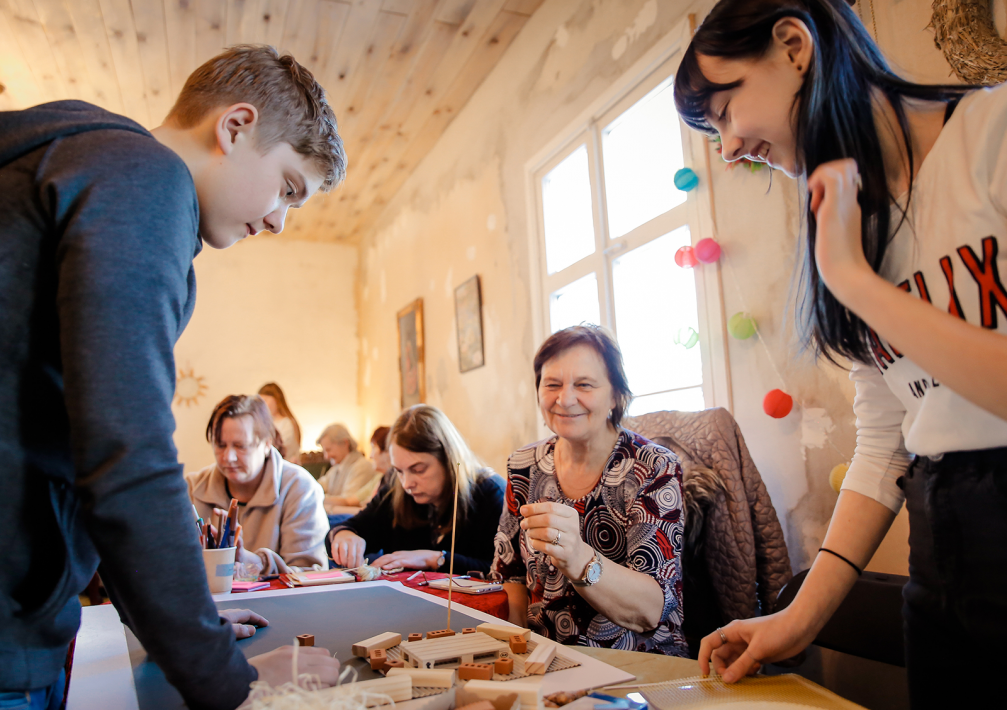
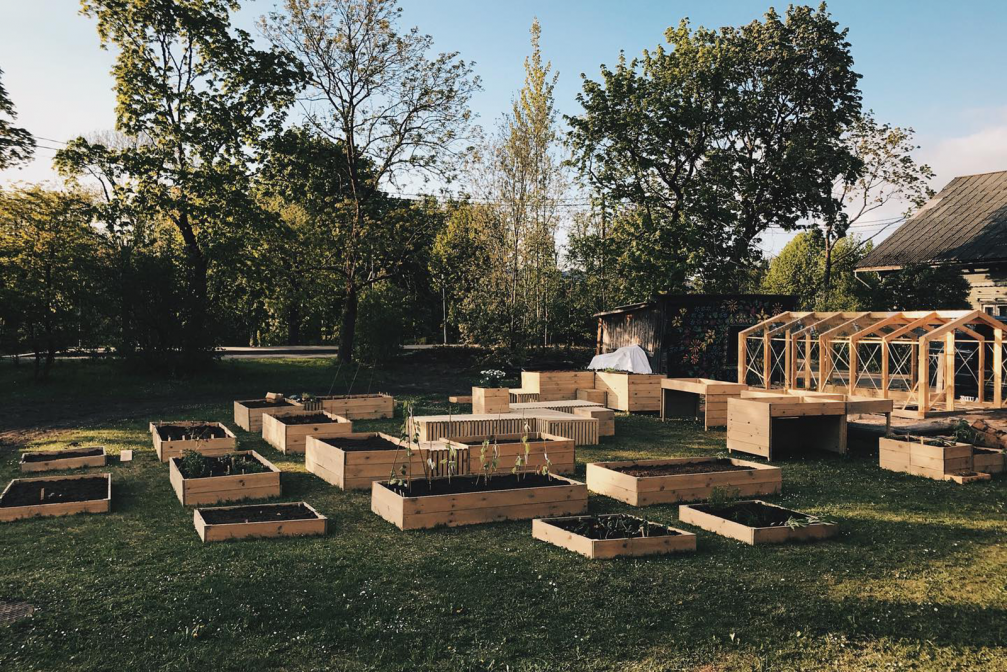
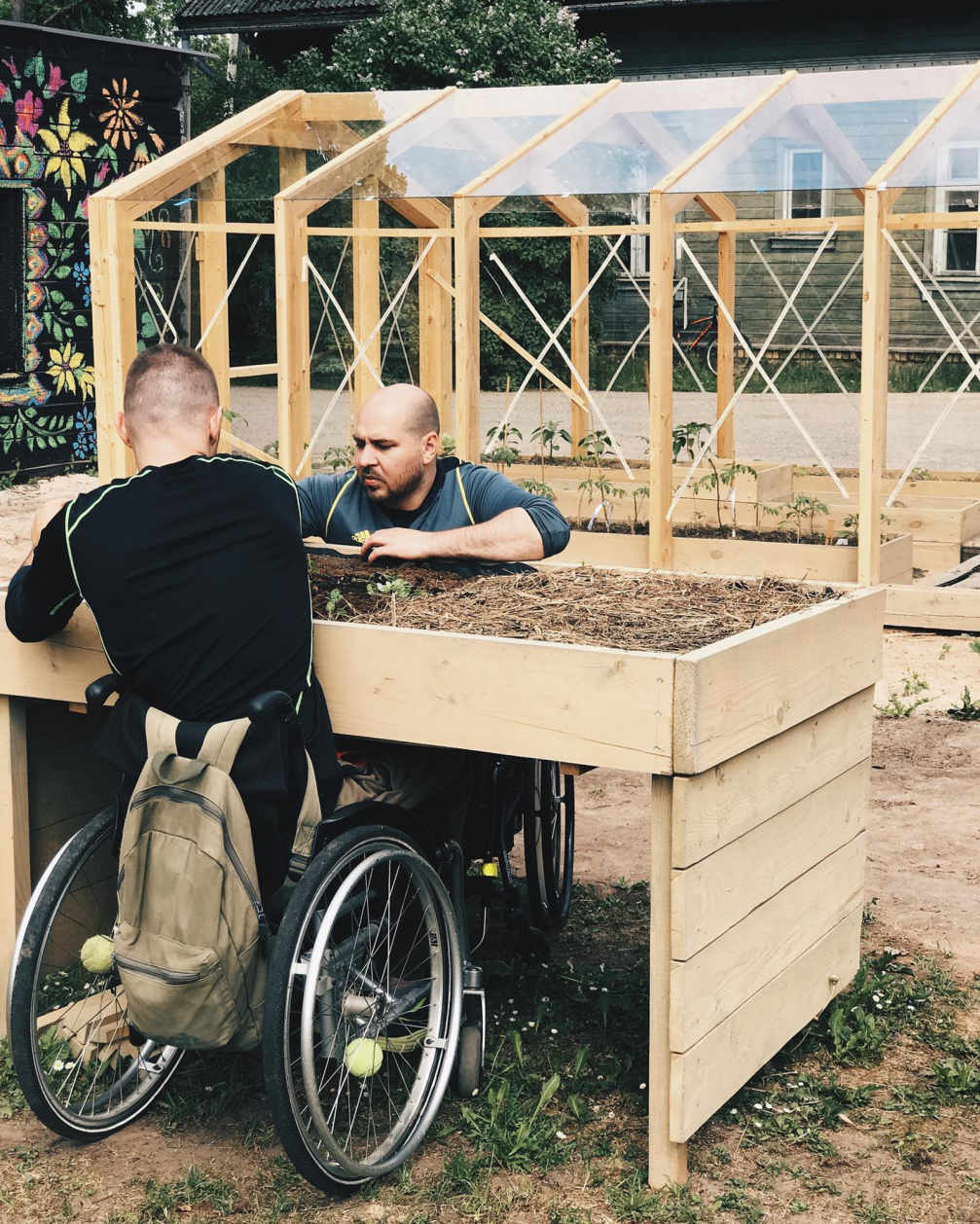
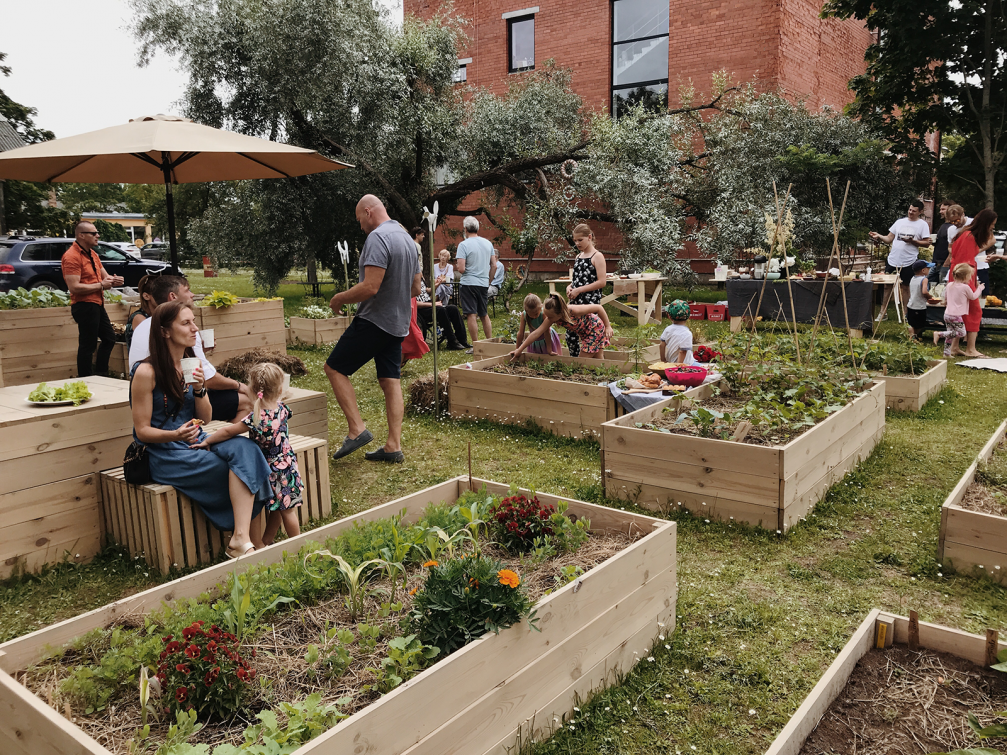
Naturally, there are certain risks associated with open projects such as these that are accessible to both local citizens and people from other cities, especially if the newcomers are unaware of the project’s initial intent. «The people we talk to here at the garden are often worried: «Do we have to pay to use the garden?», «What if someone vandalizes the garden?», «Will anyone passing by is allowed to come inside and take what food they want?». The people of Sigulda have never encountered a project seeking to implement openness and a free access model before, so the community garden «Audz» will simultaneously test to see whether the locals like to get involved and whether they have the capacity to share and work for the greater good of the community,» says the author of the garden, Nora.
Signs will be placed all around the garden, suggesting specific behaviours and actions in order to reduce confusion in its visitors, suddenly finding themselves in an unusual environment. «You could say that these signs express the thoughts and needs of the plants growing here, giving them a voice. Signs like «Water me», «Come closer and read about me», «Weed my flowerbed», «Taste me» address the visitors and invite them to participate in new, game-like experiences offering both knowledge and exploration. After successfully fulfilling a desire of a specific plant, the sign must be taken out and placed in a special container labeled «Fulfilled needs of plants» or «Finished tasks»,» Nora walks us through the organizational principles and the intended use of the garden.
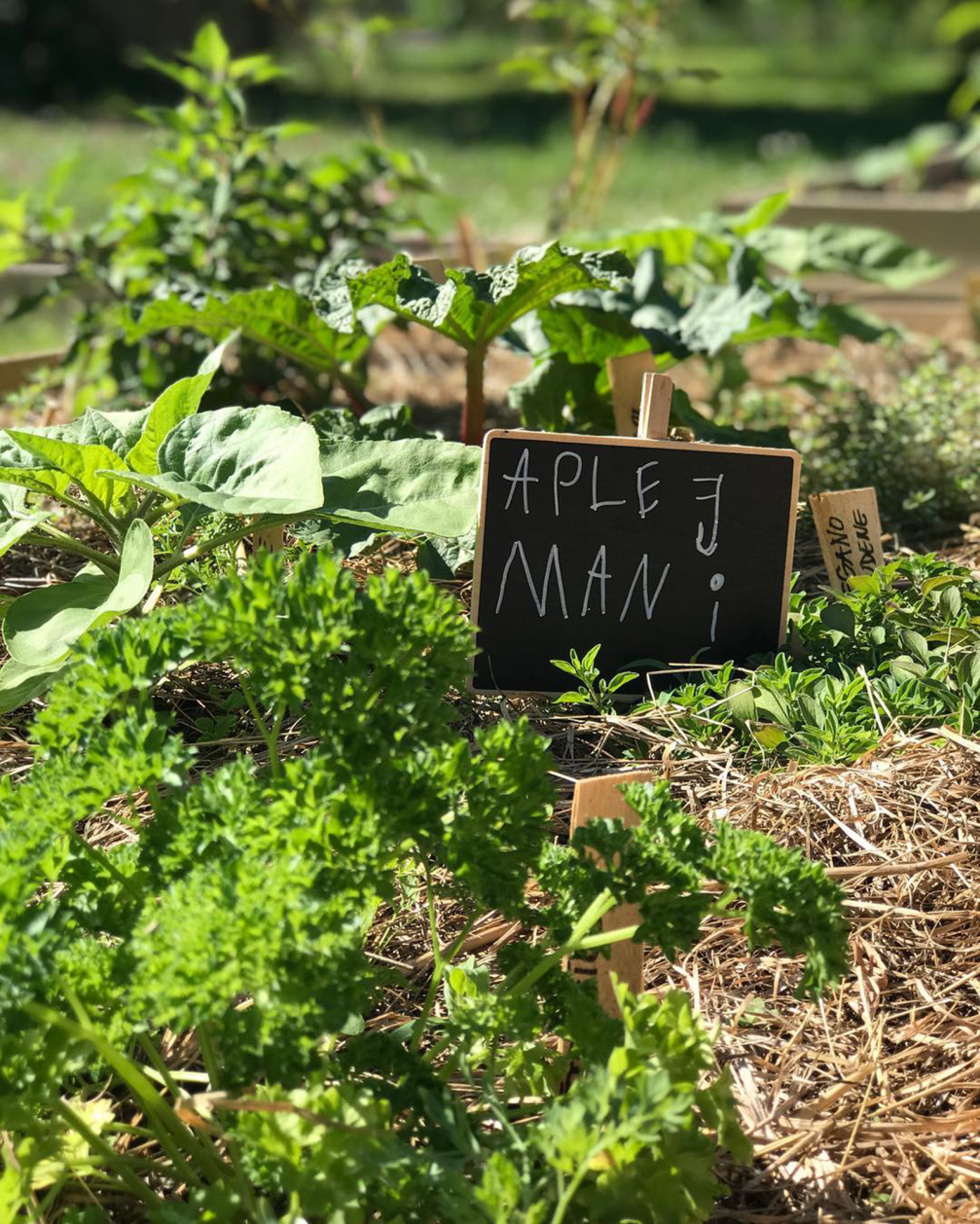
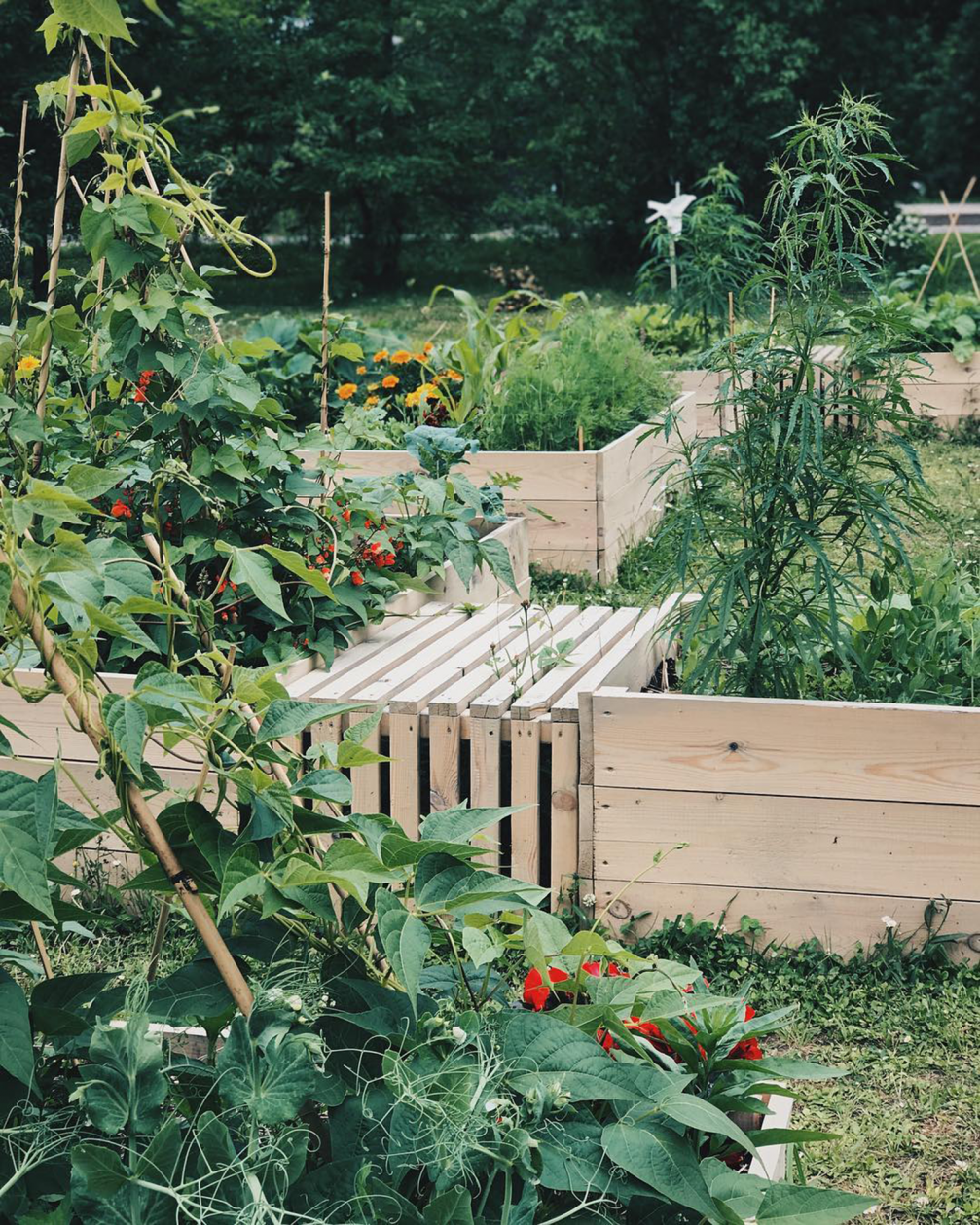
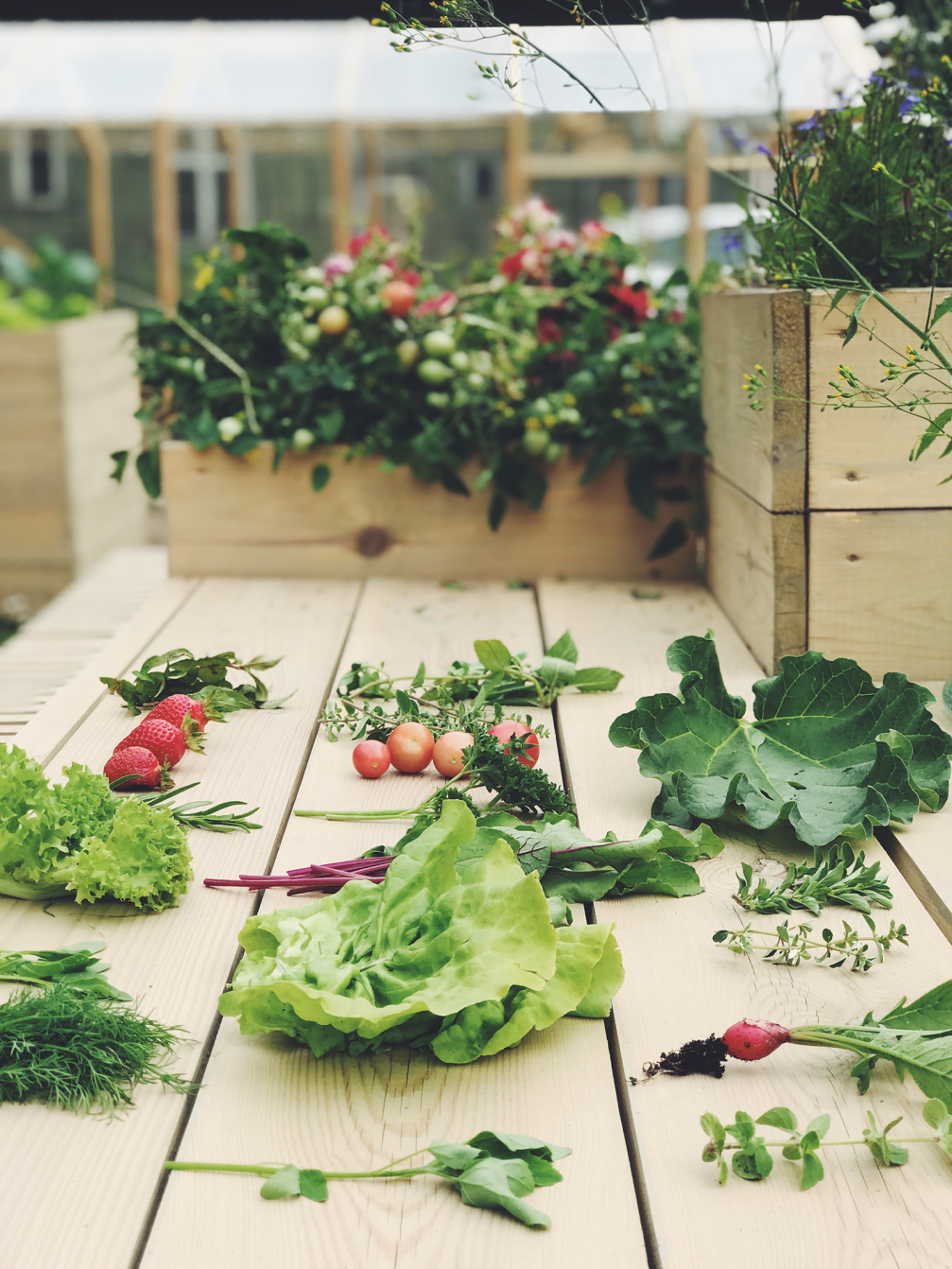
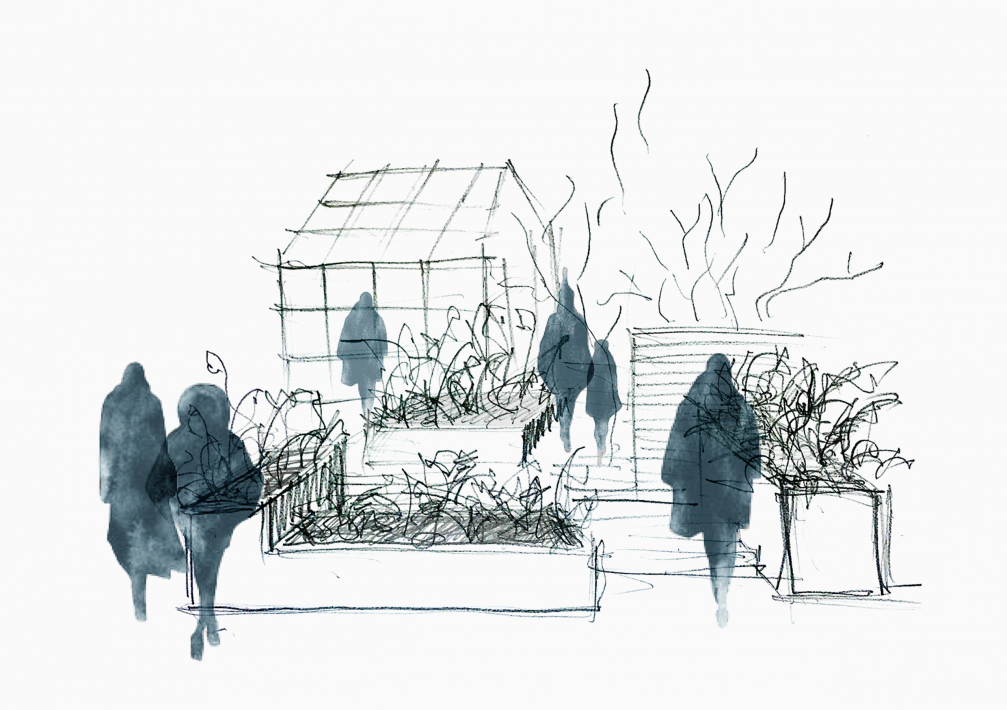
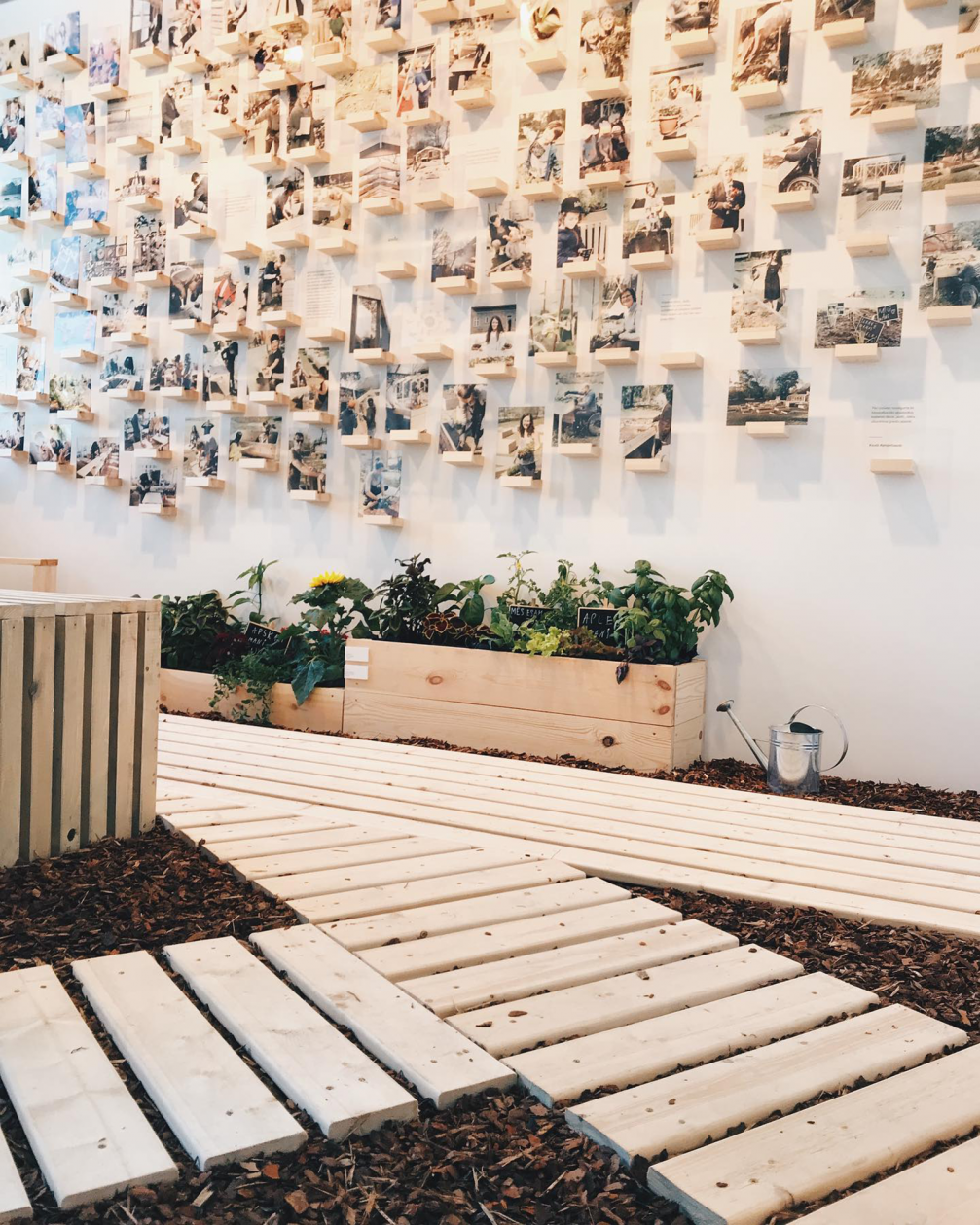
The supervisor of Nora’s master’s work is designer, design researcher and lecturer at the Art Academy of Latvia Liene Jākobsone. Follow up on the activities surrounding the community garden «Audz» on social media.
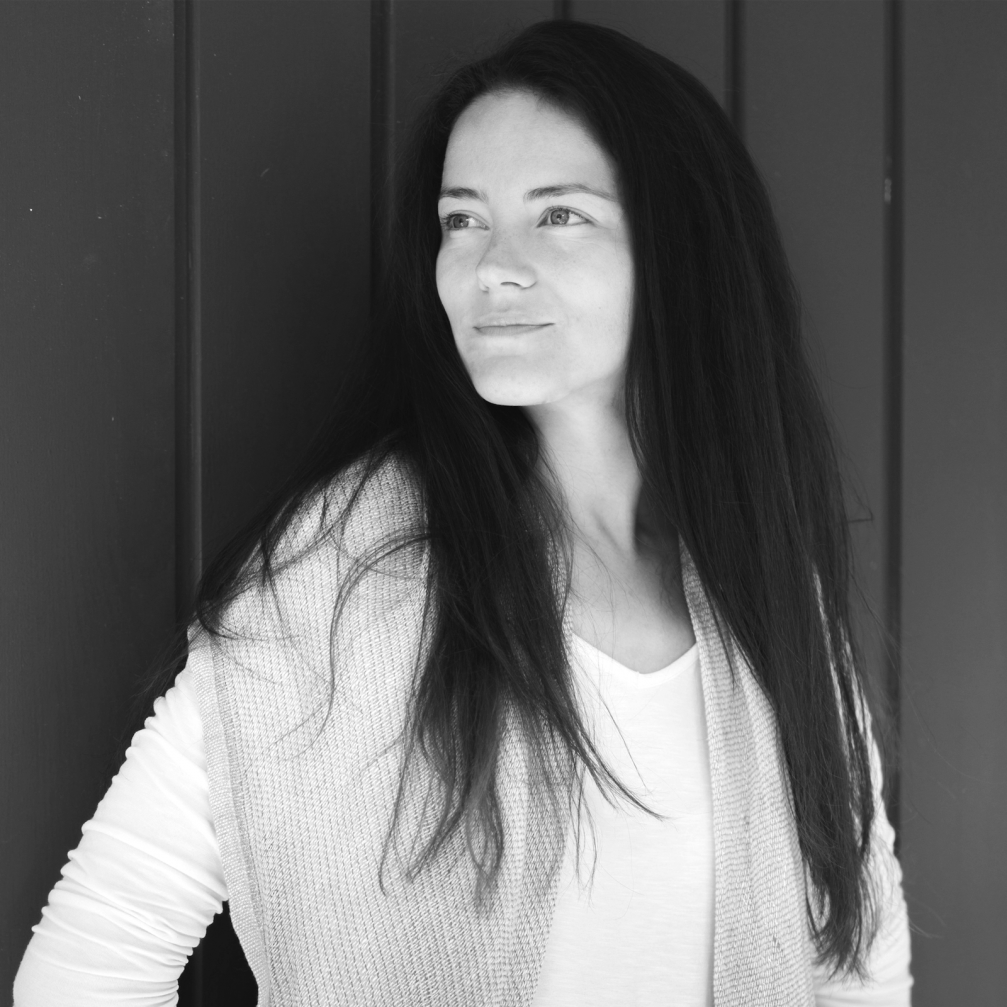
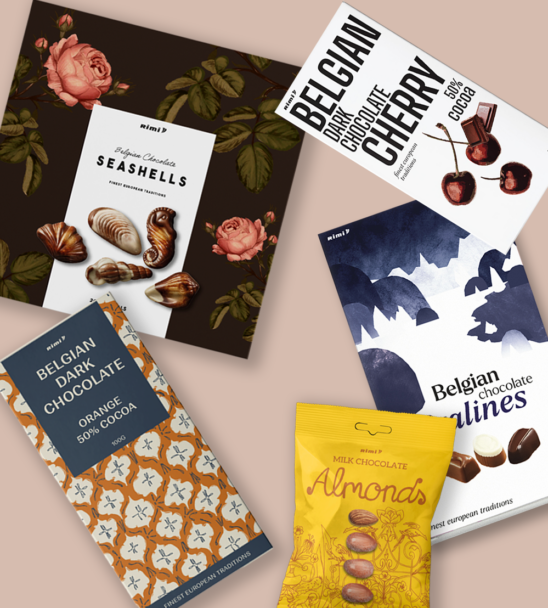
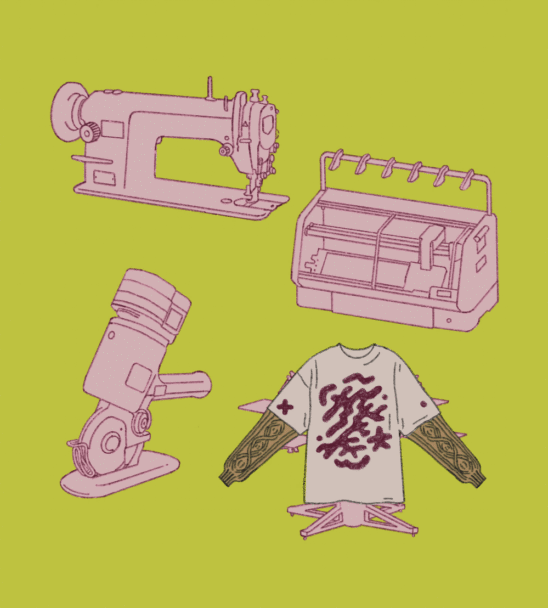
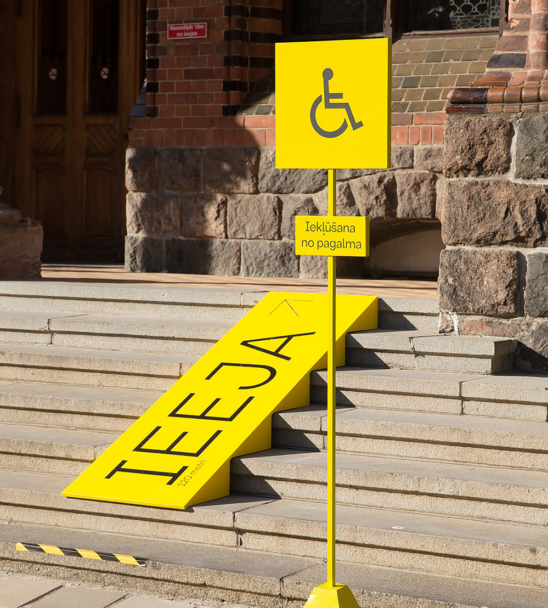
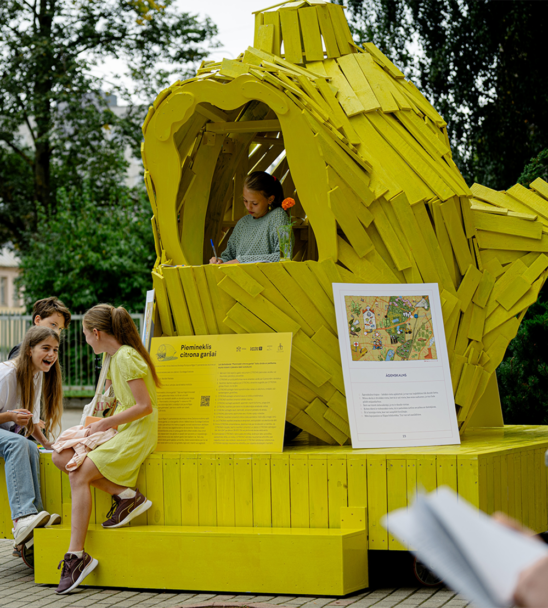
Viedokļi